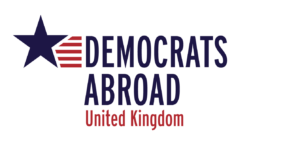
Briefing Notes No 52
Healthcare Reform
November 25, 2019
About the film
Sarah Wallis produced this episode on Obamacare as part of the Inside Obama’s White House series (BBC2 2016); Paul Mitchell was an executive producer for the series. This series aimed to take the viewer ‘behind the closed doors where the big decisions are made’ and to give the people who were in the room ‘a chance to tell their story…to just say what happened’. Combining exclusive interviews alongside archival material gives unprecedented insight into the behind the scenes negotiations and strategizing that took place. It also reminds of how precarious and contingent success is – e.g. Scott Brown’s unexpected election, securing the support of the Catholic Health Association.
The significance of messaging: Republicans pitching it as a ‘government takeover’ was effective, even sliding into the demand – often articulated by Tea Party supporters – that the government keep its hands off Medicare!
The Struggle for Universal Healthcare
Democratic Presidents and legislators have long struggled to initiate systematic reform or simply improve access to good quality, affordable healthcare for Americans. The targeted provisions of Medicare, Medicaid and CHIP ( children) and legislation on specific issues were all dependent on hard-won battles against well-orchestrated opposition campaigns. The American Medical Association’s campaign against Truman’s proposal was the most expensive lobbying effort of its time. The passage of Medicare and Medicaid in 1965 was contingent on Johnson’s landslide victory and accompanying Democratic unassailable control of the House and Senate. This shattered the ‘rule’ excluding the government from a role in healthcare. Following that, many analysts point to the Nixon-Ted Kennedy negotiations as a significant ‘lost opportunity’.
The Affordable Care Act is the landmark achievement, and over the past decade, alongside persistent
campaigning, it has laid the groundwork for a change in the discourse: specific issues such as ‘pre-existing conditions’, high deductibles, co-payments and drug costs. the scandals of ‘surprise billing’, etc. are firmly part of mainstream debates.
Where we are:
Voters now list healthcare as their top issue. Arguably (but precariously), they have a more informed engagement with the specific issues involved.
In the 2010 midterms, supporting Obamacare was often toxic; in 2017 Republicans were on the defensive in Town Halls across the country over healthcare.
While most Americans view their private (usually employment-based) or public healthcare favorably, a majority still report putting off care due to costs. Compared to other advanced economies, the U.S. healthcare system is much more complex, has worse outcomes and higher costs, while leaving a significant percentage of the population uninsured or underinsured.
The options for achieving universal healthcare
The Democratic Party and all candidates in the Presidential Primary are committed to achieving universal health care.
At issue are the specific policies – broadly divided into varying versions of Medicare for All or the development of an enhanced ‘public option’ within the ACA framework. The panel will explore these options in detail. We will face serious opposition and misinformation from an even more extreme right-wing Republican Party and its supporting organizations on this issue. Winning the fight for healthcare reform not only depends on producing an excellent plan, but also on ensuring that it is communicated as effectively as possible: framing matters! Increasing voter turnout is vital. Building on 2018, especially the younger (unprecedented increase) and sustaining our core voting groups is basic to success
Key takeaways
Key features of the US healthcare system
Provision of insurance and service:
– Insurance providers: government-funded/subsidized (Medicare, Medicaid, Chip, ACA Medicaid, ACA Exchange), and private, primarily employment-based, insurance providers covering most Americans.
– Healthcare providers: a complex network of publicly funded, private, and not-for profit institutions and professionals, but often with intertwined rather than integrated funding and delivery.
– Types of services: the ACA required insurers to cover a standard list of ‘essential health benefits’, including preventive are, but the Trump administration now allows insurers to offer “bare bones” policies without all these services.
Access:
– Uninsured rates: the ACA had an impact on our very high uninsured rates: a decline from 17.8% in 2010 to 10.2% in 2017, but Trump administration policies are reversing these gains.
– Pre-existing conditions: the ACA regulatory scheme required acceptance regardless of these or sex.
– Expansion of Medicaid: The ACA permitted states to expand eligibility for state Medicaid programs, allowing more people to have access to subsidized healthcare, such as the working poor. Not all states expanded Medicaid.
– Choice: restrictions placed on ‘choice’ of provider can be used by insurers to manage costs.
High healthcare costs for users and in administration:
– Rising deductibles, premiums and co-payments: e.g. ‘deductibles’ have risen by 8 times compared with wages for covered workers.
– Drug prices are very high, compared internationally and over time, and lead to self-rationing.
– Still the predominant reason for personal bankruptcy.
– High costs of administration, e.g. about 8.4% compared to next highest France, 5.7% and UK, 2%.
– Hospital mergers and different ownership structures have created the phenomenon of ‘surprise’ medical bills, especially for emergency care.
U.S. vs other systems:
Most comparisons with OECD countries characterize the U.S. system as much more complex, higher in cost and lower in terms of health outcomes – often ranking particularly low in terms of access, administrative efficiency and health outcomes.
While the majority of US adults rate their coverage positively – 86% as good or excellent; 13% as not so good or poor, voters are very supportive of universal healthcare. Seventy-one percent of US adults agree with ‘guaranteeing health insurance as a right for all Americans’, and 67% with reductions in health care costs, but are wary of the elimination of private health insurance and possible tax increases.
Democratic Presidential Primary Candidates’ Proposals
The options on the table are broad:
– Different strategies for introducing and developing Medicare for All;
– Reform of the Affordable Care Act and development of various forms of a Public Option open to all.
Best sources for reliable and updated analyses of healthcare issues:
Kaiser Family Foundation, The Commonwealth Fund and the Pew Research Center.
Return to the Obamacare Film Night homepage
The information and sources provided as well as the views expressed in this post reflect neither the views of DAUK or the Democratic Party nor their endorsement of, or association with them.

